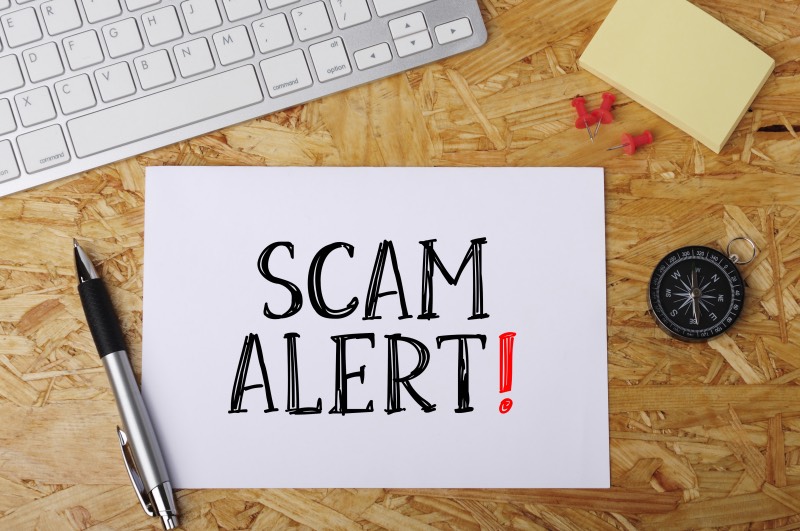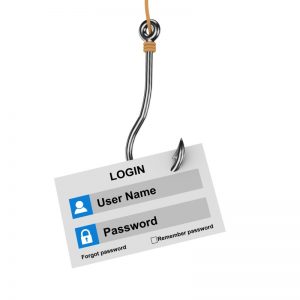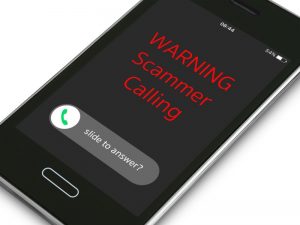
Unfortunately ‘scamming’ seems to have become part of everyday life. The ever evolving technology and increased sophistication of fraudster’s tricks has seen more and more people fall for scams. Anyone who has an email, social media or bank account can be subjected to a scam. The holiday letting sector is sadly not immune to scammers. Whether you are a potential guest, or a holiday cottage owner, there are people out there trying to trick you into giving them personal information or money. This article aims to raise awareness of the different ways scammers can trick us. The easier it is to recognise if we have been targeted by a scammer, the less likely we are to fall for their tricks.
Brief overview of the different type of scams
A lot of holiday cottage owners are aware of the most common scams. Various forums, websites and social media groups enable people to share information and give each other the heads up if a particular scam is doing the rounds. The two most common forms of scams are phishing and vishing scams. What do these mean?
Phishing scams

Phishing scams are when you are sent an email which encourages you to click on a link or log into your account. The email often pretends to come from a legitimate company such as your bank or PayPal. If you click on the link in the email it usually takes you to a fake website which collects your personal information. Alternatively, you might be asked to open an email attachment which is a computer virus.
There are a few common phishing scams sent to holiday house owners. In some the scammers pretend to be a potential guest, or they might pretend to be a photographer from a lifestyle magazine wanting to promote your property. You might even get scammers who pretend to be from advertising websites such as Independent Cottages or HomeAway asking you a click a button to view details. Read more about how phishing scams can affect holiday cottage owners here.
Vishing scams

Vishing scams are similar to phishing scams but they take place on the phone rather than through email. The word vishing combines ‘voice’ and ‘phishing’. Someone will call you and usually pretend to be from somewhere like your bank, or a government or debt collecting agency. During the phone call the scammer will try and get you to reveal information such as passwords and pin numbers or try to scare you into paying for something that you don’t need to. Find out more about how you could be affected by a vishing scam here.
Unfortunately no one is immune to these tricks. Whether you let your holiday house through an agency, with an OTA (online travel agency), or you take direct bookings, you can be caught off-guard by a convincing phone call or email. Here are some top tips to help you spot a scam.
Latest scam alert
Just as we think we are up to date on the latest tricks employed by scammers they think of something else! Recently, one of our holiday cottage owners had a guest who had their email and mobile phone hacked by a scammer. The owner received an email from the scammer (posing as the guest) asking to cancel the booking. As there was nothing unusual about the email, the owner cancelled the booking and replied to the guest’s email with the financial details of the cancellation. The owner received an email back from the scammer requesting that the money owed be paid into a bank account. Luckily the actual guest realised that their email account had been compromised and phoned the holiday cottage owner in case they had been affected.
In this particular case, a scammer had obtained the log in details to the guest’s email account. The scammer then reviewed the victims sent items and spotted an ‘opportunity’, i.e. a holiday that had been paid for but not yet taken. The scammer cancelled the holiday by using the guests email and asked that any money owed was paid into their (i.e. the scammers) own bank account. What tends to happen then is once the money is paid into the scammer’s bank account they will immediately move it to a different account and shut the first bank account down. It could be a little while before either the guest or owner are aware of what has happened, by which time the money will have disappeared with no trace of where it went.
This scam can happen to anyone transferring money online, not just holiday home owners, so it is worth ensuring we all follow a few rules to minimise the chances of it happening to us. If you make a BACS payment to anyone (for anything) always ring a landline to confirm that the bank details are correct. This also provides an opportunity to ensure the identity of the person you are paying. For this reason we recommend you taking a holiday makers address and landline phone number at the point of booking. In this case the scammer had also compromised the guest’s mobile phone. Their mobile number had been transferred to a different mobile number under the control of the scammer. If you have any suspicions make sure you call a landline and not a mobile.
In our opinion, email scammers are unlikely to speak to you on the phone. However, if you are suspicious when speaking to the ‘customer’, you could try asking a few ‘false’ questions. For example, when I recently contacted my bank, in order to confirm my identity, I was asked a few questions about payments from my account. Hidden amongst these questions was a ‘false’ question. I was asked which local organisation I paid certain bills to. I was given three reasonable options. I said that I didn’t actually make any such payments. This is something only I would know. This, of course, was the answer that the Customer Service Agent was looking for. Using the same technique, you could ask a trick question that would encourage the fraudster to answer incorrectly. For example, you could ask, “do you also want to cancel the booking that you made later in the year?”, “Did you enjoy your last stay with us?” or “Do you still have your dog Rex, and will he be coming with you?”
Also, contact your bank to discuss any additional security measures they can put in place to protect your account. In this case the scammer had access to the owner’s bank details via their guest’s emails. And finally, check what bank account you are being asked to pay money into. In this case the scammer had opened an account with the N26 bank. Whilst the N26 is a valid bank, it is possible to open an account online with limited identity checks. If you are asked to transfer funds into an N26 bank account double check that your money is going to the right place.
Working together
The aim of this article is not to send you into a panic about scams! Yes, these stories are real and can happen to any of us. However, following a few simple steps vastly reduces the chances of you being caught out. Unfortunately these fraudsters are not just part of the holiday letting industry. They are everywhere. This advice holds true for dealing with anyone you don’t know who calls or emails you.
To ensure other holiday cottage owners are kept aware of any new scamming tricks please share any useful stories below. We need to work together to stay one step ahead of these scammers!

Another common way of holiday let phishing which I have *nearly* been caught out by, is where you receive an enquiry saying “I’m very interested at staying at your place, but I can’t quite work out where it is. Is this correct…?“ And they provide a link. When you click the link (I did once!!) it takes you to an error message saying that you have been logged out of your email. They then provided an extremely authentic looking login box for my email provider. Thankfully I didn’t go any further but this is how they would have harvested my login details and then rifled through my emails!
Thanks for sharing Angus. It is easy to get caught out, particularly if you are in a rush or the scammer by chance manages to pick the same email provider.